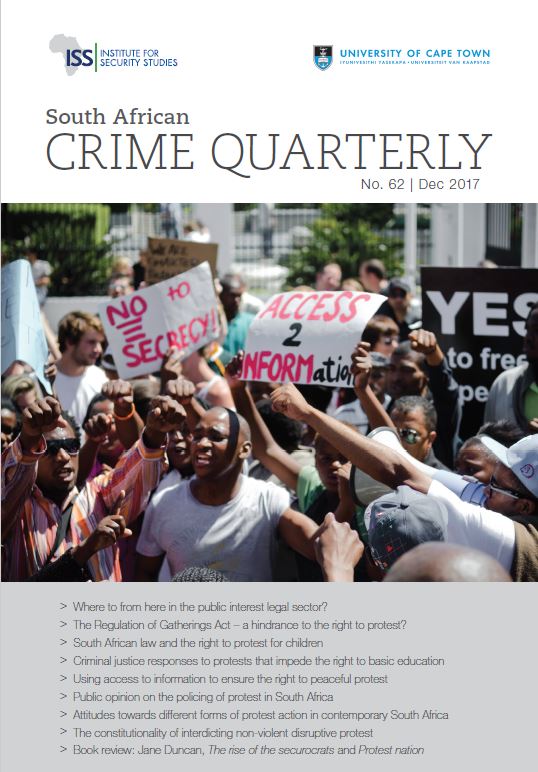Lawyering protest - critique and creativity: Where to from here in the public interest legal sector?
DOI:
https://doi.org/10.17159/2413-3108/2017/i62a3059Abstract
Frequent protests, arising from a diversity of motivations, are a feature of the South African landscape. Despite the right to protest being entrenched in section 17 of the Constitution, it is under threat, and communities seeking to protest increasingly risk criminalisation. This article identifies some of the emerging themes in the protest landscape and the way the right to protest is being suppressed. Four dominant themes are highlighted through the lens of the experiences of the public interest legal sector: the conflation of notification and permission; heavy-handed state responses to protests; the abuse of bail procedures; and the use of interdicts. Law has become at least one of the sites of contestation in the protest arena. The political space held open by the existence of the right to protest is thus closing as a result of violations of this right. It is therefore both useful and necessary to interrogate the role of lawyers in such contestation. This article also examines the context and nature of the public interest legal sector’s response to these emerging themes.
Downloads
Downloads
Published
Issue
Section
License
Copyright (c) 2017 Author and Institute for Security Studies

This work is licensed under a Creative Commons Attribution 4.0 International License.
SACQ is licenced under a creative commons licence (CC BY) that allows others to distribute, remix, tweak, and build upon your work, even commercially, as long a they give appropriate credit, provide a link to the license, and indicate if changes were made. They may do so in any reasonable manner, but not in any way that suggests the licensor endorses you or your use.
Copyright for articles published is vested equally between the author/s, the Institute for Security Studies and the Centre of Criminology (UCT).



.png)